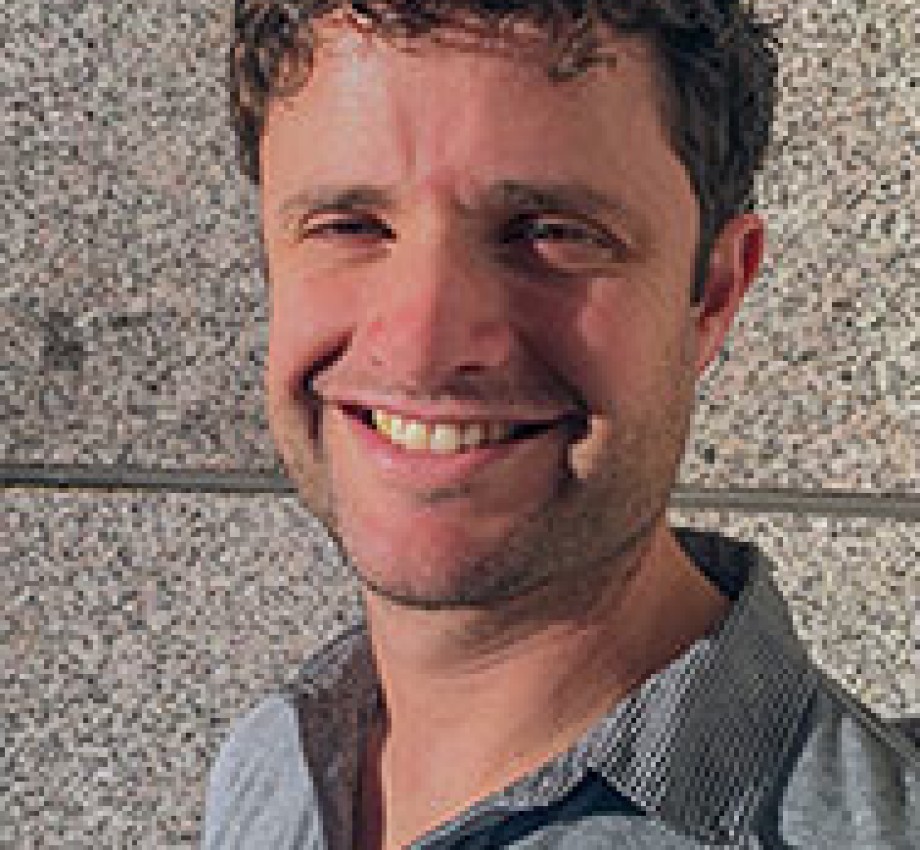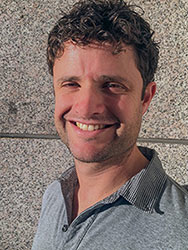Corey Datz-Greenberg Gets Real-World Psychology Experience


For Corey Datz-Greenberg, making a career change from union organizer to psychologist isn't that much of a mind-shift. In fact, there's a lot of overlap between the two fields.
As a union organizer, Datz-Greenberg explains, he spends a lot of time doing one-on-one intensive talks with each worker to help them move forward in their lives. The same process can be said for a psychologist. "I'm interested in how we are able to affect people's lives in a bigger way," he says. "In psychology, you work with people individually, as well as talk about the bigger picture of how the human mind affects how our society functions."
As a student in the Post-Baccalaureate Program for Counseling and Psychology Professions, Datz-Greenberg is getting real-world experience, thanks to instructor Dr. Richard Sprott's Introduction to Developmental Psychology course. Outside of class, Sprott and a select group of students are working toward understanding how people form identities, entitled the "FLOW Project: Family, Leisure, Online and Work Identities."
I'm interested in how we are able to affect people's lives in a bigger way. In psychology, you work with people individually, as well as talk about the bigger picture of how the human mind affects how our society functions.
"When I first started in the group, they had just finished the beginning draft of a paper from survey results," Datz-Greenberg recalls. "We're now reading The Saturated Self [by Kenneth J. Gergen] to learn how people form identities and how identities change over time, especially considering technology, increased communication and access to different resources. We're developing a study in which we interview people to learn how aspects of modern society affect how they think about themselves and their identity."
"We have two projects on identity development, which students might find relevant to their future careers," Sprott adds. "In the 'FLOW Project,' we examine how different significant domains of identity negotiation might conflict or create tension for people. We are exploring how emerging adults and young adults address challenges related to 'the saturated self.' The second project is called 'Professional Development in Emerging Fields,' where we examine work and professional identities, especially in the context of work that is newly professionalized, misunderstood or unknown. How do people form professional identities in the face of widespread misunderstanding or ignorance about their work?"
Students registered for the program can join Sprott's research team and contribute to these projects. This unique advantage provides students with experience in conducting literature reviews on issues of identity development and management, stress and burnout, and positive psychology topics. Students also learn about data collection, including conducting in-depth interviews, and research project management. And after all of their hard work, students are co-authors on research papers and presentations.
"Dr. Sprott is interested in bouncing ideas off each other and having us engage in discussions and putting together the underpinnings of what the research will be," Datz-Greenberg describes. "I've been enjoying the conversations: They make me want to ask people about their identities and what their experiences have been. I'm really interested in seeing what happens next."